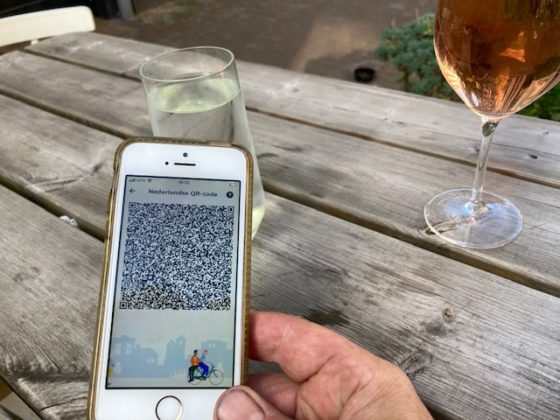Coronavirus measures in the Netherlands: what changes today


The 1.5 metre social distancing requirement is being dropped in the Netherlands from Saturday, September 25. Here’s what you need to know:
About the coronavirus pass
The Dutch coronavirus pass or CoronaCheck app generates a QR code which shows if the user has been fully vaccinated, has recently had coronavirus, or has had a negative test within the past 24 hours. The person checking the code with a scanner will see a green tick or a red cross.
Users will be required to show a QR code at cafes, restaurants and events, together with their ID.
The government is paying for free tests at locations around the country for people who have not been vaccinated.
People who live outside the EU may not been able to use their own country’s coronavirus pass system in the Netherlands.
Find out more about the CoronaCheck app via the website, in English
Find out more about what to do if you were vaccinated abroad
Make an appointment for a free test
Cafes, bars and restaurants
Everyone from the age of 13 will have to show a QR code which will show if they are considered immune for coronavirus, as well as ID.
The pass is not required on outdoor terraces following MPs objections, but customers will have to show it to go inside and use the restrooms.
The rule that everyone inside a café or bar should have a seat also goes.
Cafes, bars and clubs may open at 6am but must close at midnight.
Outdoor events, including festivals and sports
No maximum number of visitors and no fixed closing time, as long as everyone attending has a valid coronavirus pass.
Multi-day events are again okay, but visitors will have to show their coronavirus pass every 24 hours.
Indoor events, including cinemas and theatre
Indoor events with fixed seating no longer have to limit visitor numbers and there is no fixed closing time, as long as everyone has a coronavirus pass.
Indoor events without seating, such as a pop concert, are restricted to 75% capacity and must close at midnight.
Facemasks
Facemasks remain required on public transport and in airports as well as in taxis.
Education
Facemasks are no longer required in schools and universities.
If a primary school child develops coronavirus, only children they have had close contact with will be sent home and told to quarantine.
Work
The recommendation on working at home changes from ‘work at home unless there is no other option’ to ‘work from home if you can, at your workplace if necessary’.
The government is also looking into giving healthcare and other employers the right to use the coronavirus pass system but will not make it compulsory.
Travel
Since September 22, visitors from the US and UK and other high risk countries will no longer have to go into quarantine, nor will Dutch nationals returning from high risk countries. A negative test and/or proof of vaccination will still be required. Check the government website for details.
What next?
The next review date is around November 1.
Thank you for donating to DutchNews.nl.
We could not provide the Dutch News service, and keep it free of charge, without the generous support of our readers. Your donations allow us to report on issues you tell us matter, and provide you with a summary of the most important Dutch news each day.
Make a donation